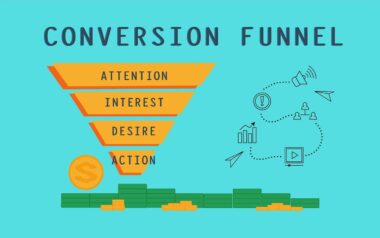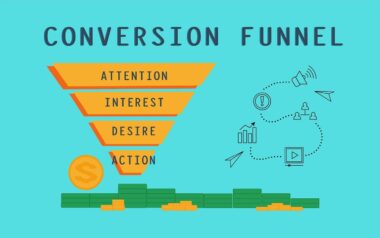Case Studies: Successful Marketing Funnel Optimization
Marketing funnel optimization is crucial to improving conversions and driving sales. In today’s digital landscape, businesses must continually analyze and refine their marketing funnels to align with consumer behaviors. Effective funnel optimization can significantly enhance customer experiences, leading to higher retention rates. One successful case study involves a SaaS company that implemented a series of A/B tests on their landing pages. By altering headlines, calls to action, and design elements, they discovered that targeted messaging converted visitors more effectively. This strategy resulted in a staggering 35% increase in their lead capture rate. Optimizing each stage of the funnel—from awareness to decision—proved essential in this case. The company also used analytics tools to monitor user interactions, gaining insights into drop-off points and user behavior. With this data, they further refined their approach, tailoring content to meet specific audience needs. Regular analysis and adjustments based on real-time data helped them cultivate a more effective marketing strategy. The key takeaway is that businesses can thrive by embracing a thoughtful approach to funnel optimization, ensuring marketing strategies evolve alongside consumer expectations.
Insights from Industry Leaders
Another notable example comes from an e-commerce business specializing in outdoor gear. They recognized critical drop-offs in their user journey during the checkout process. By integrating tools like heat maps, they received valuable insights into where customers hesitated or abandoned their carts. Addressing these bottlenecks was key to enhancing their funnel performance. They redesigned their checkout experience by simplifying the form fields and adding trust signals, such as secure payment icons. They also introduced cart abandonment emails, reminding customers of their saved items. As a result of these changes, they observed a remarkable 25% increase in conversion rates. This case illustrates how embracing user feedback and behavioral analytics can lead to informed decisions. Continuous testing and iteration become essential parts of the optimization process. Furthermore, leveraging customer feedback through surveys or follow-up emails provides additional context. These efforts collectively ensure that the marketing funnel aligns with user expectations, ultimately driving increased sales and customer satisfaction. Adapting to insights from the data available can make a substantial difference in marketing funnel optimization for businesses.
In a third example, a fintech startup undertook a comprehensive review of their marketing funnel after initial launch results fell short of expectations. By segmenting their audience based on demographics and user behavior, they tailored multiple marketing messages across various platforms. They utilized channels like social media, email, and Google Ads to experiment with different ad creatives and messaging. This segmentation allowed them to identify specific pain points within each audience niche, resulting in more targeted campaigns. Additionally, they applied rigorous analytics to measure outcomes. Through a series of iterations, they optimized their entire funnel—from lead generation through to conversion. The results were evident in a 40% increase in sign-ups over six months. This case highlights the importance of segmenting marketing strategies and harnessing relevant personalization practices. By understanding the specific needs of diverse audience segments, businesses not only enhance user engagement but also significantly improve conversion metrics. Ultimately, investing time in understanding and optimizing the marketing funnel enables startups to better align their offerings with market demands, leading to sustained growth.
Leveraging Data-Driven Decisions
A leading travel agency also focused on refining their marketing funnel through data analytics. They used customer relationship management (CRM) software to accurately track lead interactions and behaviors. By examining customer journeys, they were able to identify trends and patterns, recognizing areas needing improvement. Based on the analytics, they initiated targeted marketing campaigns that highlighted personalized travel packages tailored to user interests. A/B testing different campaign strategies further enhanced their effectiveness. To capitalize on customer insights, they implemented a loyalty program, encouraging repeat bookings. This multifaceted strategy led to a significant increase in customer retention and a reported 30% rise in repeat bookings within a year. The approach taken showcases the value of leveraging data to inform marketing strategies. By integrating customer feedback, analysis, and testing, businesses can create a responsive marketing funnel. Ensuring that messaging resonates with travelers or any consumer group can lead to successful outcomes. Focusing on retaining existing customers while attracting new ones makes for a sustainable marketing strategy that contributes to long-term success.
In a mobile app development company case, the team discovered that their initial user acquisition strategies were not yielding the desired outcome. They decided to completely reassess their marketing funnel and introduced an onboarding process designed to improve user engagement from the start. They segmented user experiences based on demographics and usage patterns, tailoring onboarding messages to fit varied user needs. Through direct communication and feedback loops, they quickly identified features users found most valuable, leading to data-driven enhancements. This careful re-evaluation resulted in higher user satisfaction scores and created a more efficient funnel. Furthermore, they leveraged analytics to track milestone events within the app, helping to maintain user engagement beyond the initial download. Over time, they achieved a remarkable 50% increase in monthly active users, emphasizing the importance of personalized experiences in app retention strategies. By adapting the marketing funnel to align with evolving user expectations and preferences, the app company secured a winning strategy. Continuous adjustments based on feedback ensure the journey is optimized for each user, paving a path toward lasting success in a competitive landscape.
Conclusion: The Path Forward
Each of these case studies emphasizes the critical role of marketing funnel optimization in achieving business goals. By analyzing customer journeys, maximizing engagement, and utilizing data-driven strategies, companies can enhance their conversion rates significantly. Implementation of effective funnel analysis techniques, including A/B testing, user segmentation, and direct feedback loops, showcases the effectiveness of addressing consumer needs. Continuous iteration and adaptation are essential for maintaining relevance in today’s fast-paced market environment. Marketers must prioritize understanding their audience’s journey and optimize processes at each stage. Drawing from these successful case studies offers valuable insights that can steer businesses toward more effective marketing strategies. By doing so, organizations can not only improve sales outcomes but also drive meaningful interactions with their customers. The marketing landscape continuously evolves, and companies must stay ahead of trends and consumer expectations. By committing to ongoing optimization efforts, the potential for remarkable growth and improved customer satisfaction becomes achievable. As businesses focus on creating seamless customer experiences, the rewards of marketing funnel optimization become increasingly evident.
To summarize, marketing funnel optimization unveils numerous opportunities for businesses aiming to thrive in competitive markets. By analyzing successful case studies, companies can learn the value of robust funnel strategies supported by data-driven decisions. The key strategies discovered, such as user segmentation, personalized experiences, and continuous testing, contribute significantly to improved outcomes. Each example demonstrates how organizations embracing these practices can achieve remarkable results while enhancing customer satisfaction. It’s essential for companies to embrace change as an opportunity for growth, ensuring they don’t fall behind industry standards. As digital landscapes shift and consumer behaviors evolve, staying relevant becomes critical. Therefore, the investment in effective marketing funnel analysis and optimization will prove beneficial in the long run. Understanding these insights allows marketers to create targeted campaigns that resonate deeply with their audience, promoting a cycle of engagement and loyalty. To succeed, organizations must remain agile and responsive to market changes while ensuring they continually refine their marketing approaches.
Final Thoughts on Marketing Funnel Optimization
Ultimately, the insights gained from studying successful marketing funnel optimizations point to a broader necessity for continual improvement in marketing efforts. Companies must recognize that customers are looking for more than just a product; they seek experiences that resonate with their needs and preferences. Investing in a strategic approach to understanding and optimizing marketing funnels enables organizations to enhance not only their conversion rates, but also build lasting relationships with their clientele. As businesses look to the future, aligning every aspect of the marketing funnel with user experience provides a pathway for sustainable growth. Encouraging a culture of experimentation, driven by analytics, empowers marketers to continually refine their strategies based on real-world interactions. The actionable insights derived from these efforts can transform the entire customer journey, ensuring that engagement remains consistent across channels. As technologies evolve and user preferences shift, staying ahead of the competition will require an unwavering commitment to optimizing the marketing funnel. By focusing on these critical elements, organizations will better position themselves to meet their objectives while also delighting their customers.





